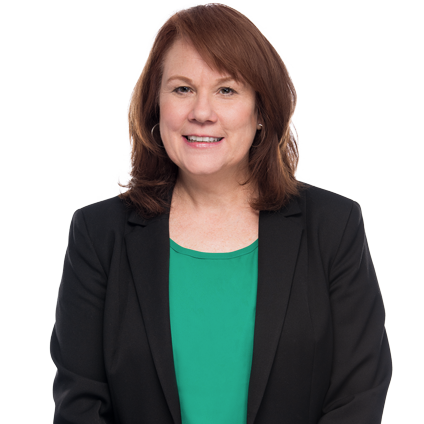On January 16, 2018, the New Jersey Attorney General adopted new rules governing the amount of influence pharmaceutical companies may have over prescribers through compensation arrangements. These rules are set forth at N.J.A.C. 13:45J (the “New Rules”). This article answers several questions that health care professionals may have in light of the adoption of the New Rules.
Who is subject to the New Rules?
The rules apply to “prescribers” which are defined as physicians, podiatrists, physician assistants, advanced practice nurses, dentists, or optometrists.1
What if I am receiving benefits from someone other than the pharmaceutical manufacturer?
The New Rules apply not only to pharmaceutical manufacturers, but also to their agents.
Can I receive gifts from a manufacturer or their agent?
You cannot accept anything of value from a pharmaceutical company or its agent even if it is nominal in value, unless it has the legitimate and sole purpose of being used in the prescriber’s office.2 This prohibition includes small items such as pens, note pads, clipboards, mugs or any other promotional item with the manufacturer’s branding or logo.
What do the New Rules allow prescribers to accept from a pharmaceutical manufacturer or their agent?
Prescribers may accept the following items: 1. Educational items for use in the prescriber’s office, e.g., anatomical models; 2. Subsidized registration fee at an education event provided the fee is available to all participants; 3. Meals (below $15.00/person) provided through an event organizer at an education event; 4. Meals (below $15.00/person) provided by a manufacturer; 5. Fair market value compensation for providing bona fide services as a speaker or faculty organizer or academic program consultant for an education event including travel, lodging, and other personal expenses; 6. Fair market value compensation for providing bona fide services as a speaker or faculty organizer or academic program consultant for promotional activity including travel, lodging, and other personal expenses; 7. Fair market value compensation for participating on advisory bodies under consulting arrangements including travel, lodging, and other personal expenses; 8. Reasonable payment or remuneration for travel, lodging, and other personal expenses in connection with research activities; 9. Reasonable payment or remuneration to prospective applicants for travel, lodging, and other personal expenses associated with employment recruitment; and 10. Royalties and licensing fees for use or purchase of a legally recognized discovery, e.g., use of a patent.3
Is there a cap on compensation for services?
Yes, there is a $10,000 cap per calendar year on compensation for services of presentation as speakers at promotional activities, participation on advisory boards, and consulting arrangements.4 This cap does not apply to payments received for speaking at education events; however, all such expenses must be fair market value and set forth in writing.5 A prescriber may also receive reasonable payment and remuneration for travel, lodging, and other personal expenses associated with such services.6 The cap is an aggregate cap, meaning compensation from multiple manufacturers are aggregated together.7 For example, if Manufacturer A provides you with $8,000 to speak at a promotional event, and Manufacturer B provides you with $3,000 to speak at another promotional event during that same calendar year, accepting the compensation from Manufacturer B will put you over the $10,000 cap.
What is an education event?
An education event is an event where: 1. The gathering is primarily dedicated to promoting objective scientific and educational activities and discourse; and 2. The main purpose for bringing attendees together is to further their knowledge on the topic(s) being presented.8
Am I allowed to accept an electronic device if I am using it for patient use?
Yes, provided that it is used by patients and remains in a common area of the prescriber’s office.9
Can I accept sample medications?
Yes, provided they are to be used exclusively for the benefit of the prescriber’s patients and the prescriber does not charge patients for such samples.10
Do I need to enter into written contracts with manufacturers before providing services on their behalf?
Yes, these arrangements must be in writing to meet the bona fide services exception to the New Rules.11
What about contracts that were entered into before the New Rules were adopted?
The New Rules do not apply to contracts entered into before January 15, 2018.12 The applicable licensing board’s regulations as well as federal law, which existed prior to the adoption of the New Rules and continue to exist, however, still apply to such relationships.
Do I need to disclose anything before making a presentation?
Yes, if you accepted payment for services from the sponsoring manufacturer within the last five years, you are required, either orally or in writing, at the beginning of the presentation to advise that you have accepted payment.13 The New Rules do not require you to disclose the amount.
Conclusion
The New Rules limit the exceptions contained in the previous regulations. It is crucial that New Jersey physicians, podiatrists, physician assistants, advanced practice nurses, dentists, and optometrists review any potential arrangements with pharmaceutical manufacturers that may be implicated by the New Rules.
[1] N.J.A.C. 13:45J-1.2. [2] N.J.A.C. 13:45J-1.3. [3] N.J.A.C. 13:45J-1.4. [4] N.J.A.C. 13:45J-1.6. [5] Id. [6] N.J.A.C. 13:45J-1.4(a)5,6. [7] N.J.A.C. 13:45J-1.6. [8] N.J.A.C. 13:45J-1.2. [9] N.J.A.C. 13:45J-1.4(a)1. [10] N.J.A.C. 13:45J-1.5 [11] N.J.A.C. 13:45J-1.2. [12] N.J.A.C. 13:45J-1.1A. [13] N.J.A.C. 13:45J-1.7.


